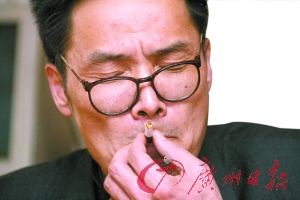Li Yinhe: law should not harm people's private rights
A Chinese university professor has been jailed for running a sex club, whose members were the first to be convicted of "group licentiousness" in 20 years, media reported on Friday.
 |
|
Ma Yaohai |
Nanjing Qinhuai District court sentenced the 53-year-old computer science professor Ma Yaohai to three and half years in prison. Eighteen others were also charged and jailed for up to two and half years.
Researcher at the Chinese Academy of Social Sciences Li Yinhe thinks the judgment is reasonable under China's current judicial system. She says similar actions would have received the death penalty 20 years ago, and although it does show a certain level of social advancement, both the Ma ruling and the law should be rescinded.
According to China's criminal law, "group licentiousness" implies "more than two people having sex and brazenly despising state laws and social morality." However, there is no legislative and judicial interpretation for this term yet.
Li asked, "Did Ma's activities impede social order? Does the punishment harm people's private rights?"
Ma said his group activities, which he called "swing games," disturbed no one.
"People chose to do it of their own free will and they knew they could stop at any time," Ma told media at a news conference in April at his home, where 14 of the 18 club "activities" were held.
Ma's club was a voluntary, private and fair activity, Li said; it didn't trigger any civil dispute or social disorder, but the current law governs such personal acts with public power.
Li didn't agree with Ma from a moral perspective, because it's against traditional Chinese morality, however, she asserted it was Ma's free choice of a sexual act.
"As long as it doesn't impede others, it should be respected and protected," Li said.
According to Li, most countries don't punish sexual acts if they're among adults, voluntary, and private. Also taken into account is if the actions produce no victim, which differs from rape and sexual harassment. Finally, there's no harm to human relations, such as marriage.
Li Yinhe suggests voiding the "group licentiousness" law as soon as possible.
"It's like people's bodies belong to the government instead of themselves. If our lawmakers think the country's dignity is injured when people take off their clothes, something wrong may exist," Li said.
Supposedly, the original intention of this law was to protect monogamy, though Li didn't agree with this.
"Though most of Chinese will eventually marry, a certain percentage will choose to stay single. Their acts are against tradition too, but we don't put them in jail," Li argued.
Li found that there are numerous sexual activities involving more than two people and some sex club websites that have hundreds of thousands of members, and she pointed out, the Chinese social order is not affected by them. The "group licentiousness" term is outdated and wrong, she said.
Li added that sexual attitudes have become freer and more diverse around the world, similar to the way in which Chinese society has changed in the past 30 years.
"In the process of social transformation, laws should protect people's private rights, not to violate them," Li said.
 0
0 







Go to Forum >>0 Comments